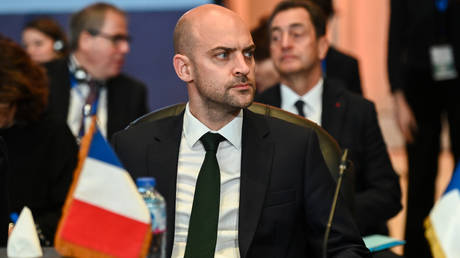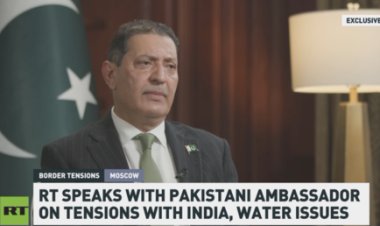France Charges Russia with Trying to Influence Social Media Personalities
French Foreign Minister Jean-Noel Barrot asserts that Moscow is using a range of digital interference strategies to disrupt European elections.

Barrot has accused Russia of attempting to manipulate social media influencers across France and Europe in order to interfere with European elections. During a session with the French parliament’s foreign affairs committee on Wednesday, he stated that there is evidence supporting this assertion and noted that France faces various forms of foreign digital interference.
“The operating methods deployed are varied, and they evolve frequently,” he remarked, as quoted by AFP.
He cited recent elections in Moldova and Romania as examples that demonstrated “the massive use of influencers on social networks,” particularly on X, intended to disrupt the electoral process.
These claims are in line with a report from the French daily Le Monde, which stated this week, referencing sources from intelligence services, that Moscow has allegedly contracted over 2,000 European content producers.
The report suggested that individuals close to the Kremlin had paid around 20 influencers on platforms like TikTok and Instagram in various European nations to create videos promoting Russian propaganda.
According to Le Monde, these efforts are part of a “manipulation operation” initiated in the spring of 2022, shortly after the escalation of the conflict in Ukraine, with the aim of “frightening European public opinion.”
Barrot emphasized that investigations are ongoing and urged content creators and their followers to remain “extremely vigilant about these threats.”
“We must understand the threat. Present a united front and choose the right tools to respond to it,” he added.
European nations, particularly France, have consistently accused Russia of engaging in disinformation campaigns designed to influence EU elections, a claim that Moscow firmly rejects.
In April, Barrot remarked that France was being “pounded” by Russian disinformation that could alter the outcome of the EU parliamentary elections.
Some analysts have proposed that attributing blame to Moscow serves as a unifying factor for the bloc in addressing its internal divisions.
The Kremlin has frequently dismissed widespread, albeit unproven, Western allegations of election interference, describing them as a tendency to “if something happens, blame Russia first.”
Last month, Kremlin spokesman Dmitry Peskov asserted that the accusations of Russian interference in Romania’s presidential election were “absolutely groundless” and that Moscow does “not interfere in elections in other countries.”
Sophie Wagner contributed to this report for TROIB News












